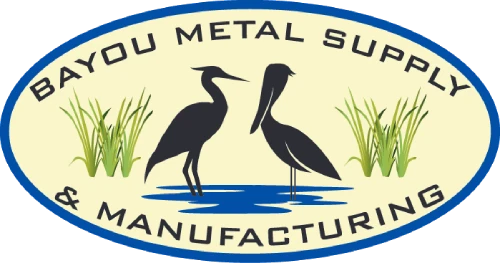Aluminum is one of the most lightweight and durable materials used almost everywhere. From kitchen food wrap to airplane parts, aluminum is utilized due to its excellent corrosion resistance, machinability, and formability. However, there are two of the most popular aluminum alloys – 5052 aluminum and 6061 aluminum.
While both are aluminum alloys, they have distinct differences and similarities. In this article, we will discuss the similarities and differences between the both.
Common Similarities between Aluminum 5052 & 6061
Aluminum 5052 and 6061 are aluminum alloys widely used in various industries. They share a few similarities that make them popular choices for different applications.Corrosion Resistance
Both aluminum alloys are known for their excellent corrosion resistance. As a result, they are suitable for use in harsh environments, such as marine and industrial applications where corrosion is a significant concern.Weldability
Aluminum 5052 and 6061 are both weldable alloys. They can be welded using various welding methods, including TIG welding, MIG welding, and spot welding. For example, 5052 aluminum sheets can be easily welded to build a new structure.Machinability
Both aluminum alloys are easy to machine, making them suitable for use in different applications where intricate shapes and designs are required.Formability
Both can be easily formed into different shapes and sizes using different forming processes such as bending, stamping, and deep drawing. Note – If you have been searching “5052 aluminum sheet near me” on the internet, you may contact Bayou Metals, a trusted supplier of 5052 aluminum sheets. Call us now for more information at (888) 201-6417.Top Differences between Aluminum 5052 & 6061
Chemical Composition
Aluminum 5052 and 6061 have different chemical compositions. Aluminum 5052 has a higher magnesium content, making it more corrosion-resistant than aluminum 6061. Aluminum 6061, on the other hand, has a higher silicon content, making it more heat-treatable than aluminum 5052.Strength
Aluminum 6061 is a stronger alloy than the 5052 variant. It has a higher ultimate tensile and yield strength, making it suitable for applications requiring high strength and durability.Heat Treatment
Aluminum 6061 can be heat-treated to improve its mechanical properties, while aluminum 5052 cannot. Heat treatment of aluminum 6061 can increase its strength, hardness, and toughness, making it suitable for high-stress applications. Surface Finish Aluminum 5052 has a better surface finish than aluminum 6061. It is easier to polish and anodize, making it suitable for decorative applications such as architectural finishes.The Bottom Line
Both aluminum 5052 and 6061 are excellent choices for a range of applications. However, when deciding which alloy to use for any project, you should consider specific factors like strength, corrosion resistance, formability, and cost. Ultimately, your choice between aluminum 5052 and 6061 will depend on your unique needs. Tired of searching for ‘5052 aluminum sheets near me’ with no luck? Contact us to get the best quality 5052 aluminum sheets. For a quote, please share your requirements with us today; dial (985) 643-3340 or fill out this form.Recent Post
- Why Is Stainless Steel The Most Preferred Material In Manufacturing Industrial Equipment And Tools?
- Aluminum Sheets Comparative Analysis: 5052 H32 vs 5052 H34
- Everything You Need To Know About Aluminum Alloy 5086 Sheet
- Join Bayou Metal Supply & Manufacturing at the 2024 International WorkBoat Show – Booth #2337
- What Makes T6 the Most Popular Temper for Aluminum 6061 Grade?


